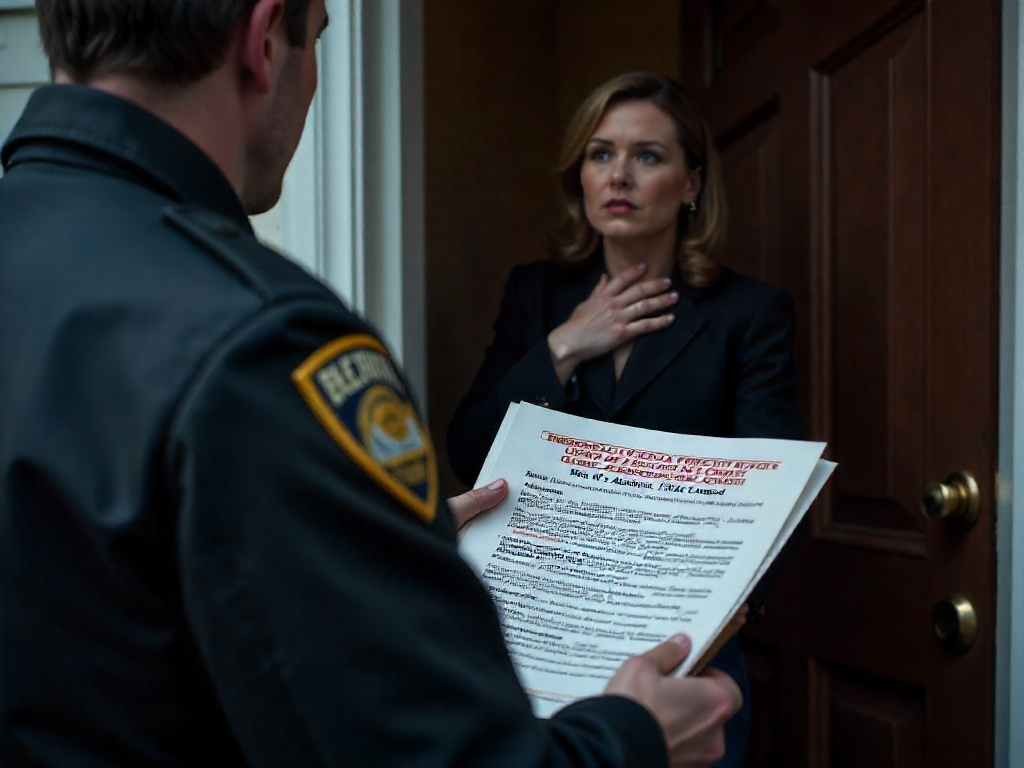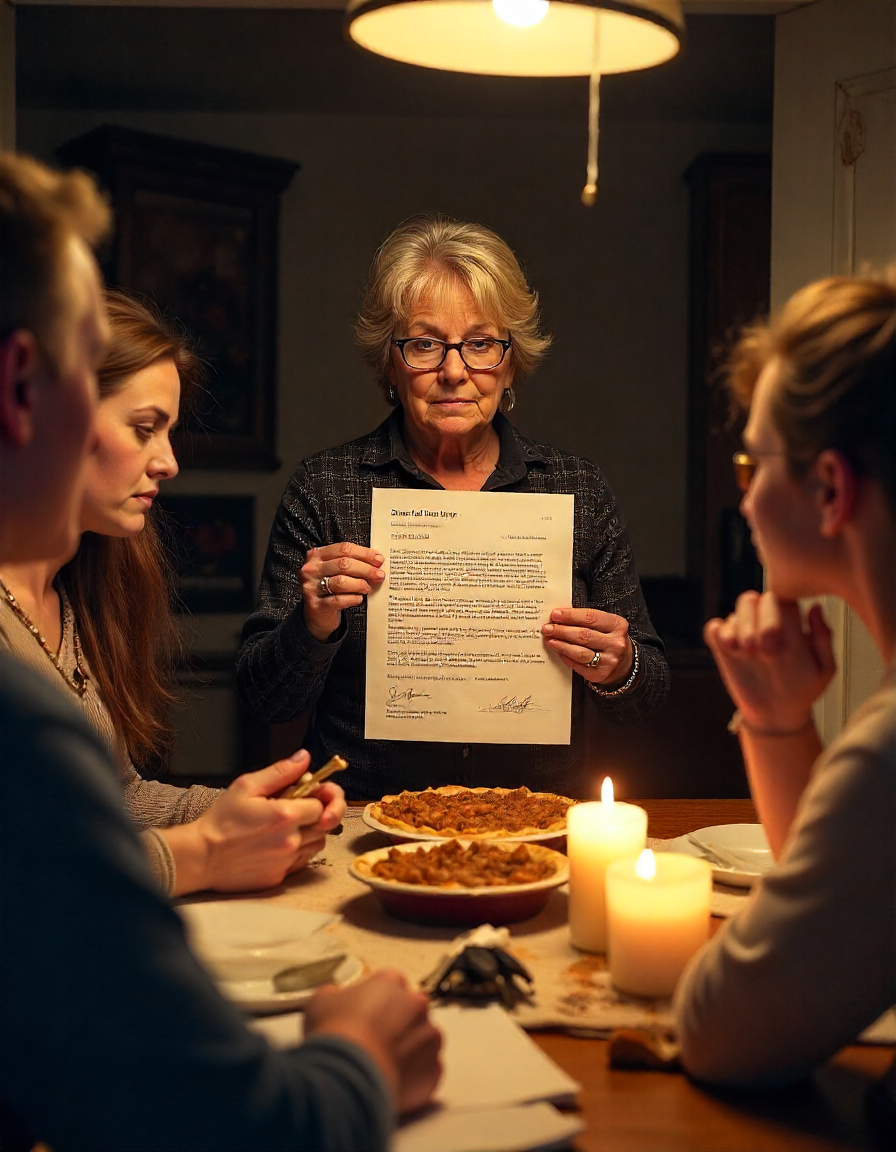The man pulled his jacket tighter and showed me an embossed badge. “Mrs. Hale?” he asked, voice clipped. He wasn’t a salesman; he was a deputy with a stack of papers stamped ‘Emergency Protective Order.’ My throat closed. The stack included the complaint I’d filed online and a blanket freeze on our household accounts. Apparently the bank had flagged the forged power of attorney and moved immediately when I provided the copies I’d printed this morning.

He explained they would take statements and secure the baby’s welfare. My son went pale and flung a denial that sounded like bargaining. My husband looked from the defendant to me and back, as if a film of fog had lifted. I felt nothing cinematic—only the steady drum of my heartbeat, a recalibration of trust.
I slid the photos across the table. Photos of the copied signature, bank logs with routing numbers, emails where my son and daughter-in-law arranged transfers. The deputy read, nodded, and asked for my version. I told it, clipped. Years of care compressed into a few sentences. The room, once hot with laughter and gravy, emptied into a hollow I understood too well.
They were escorted out without the baby; my grandson stayed with a neighbor until Social Services completed their check. My husband hugged my hand like an apology and a plea. I let him; grief is complicated and faithful, and so is forgiveness. I signed forms, gave my testimony, and watched the deputy place hold tags on the account door.
Later, alone in the quiet kitchen, the roast scent lingered like accusation and memory. I called my sister and asked her to come. This night did not end with everything returned, but with a border erected between what had been stolen and what I would not let go.




